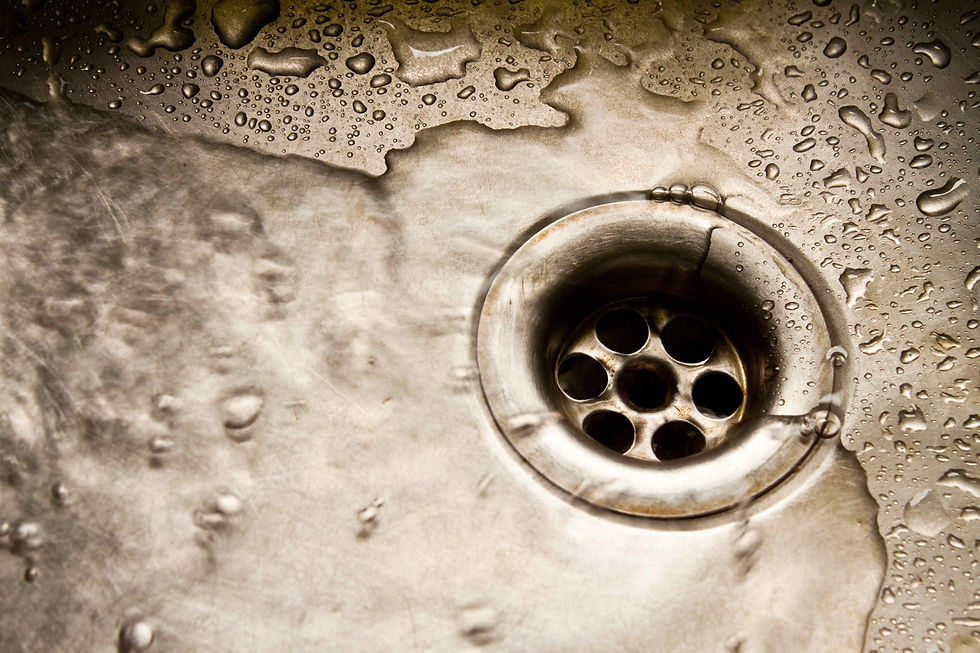The Hidden Consequences of Pouring Grease Down the Drain
- forgachplumbing
- Jun 17
- 3 min read

Pouring grease down the drain may seem harmless, especially after a delicious meal. However, this seemingly small act can cause massive plumbing problems and environmental harm. It's crucial to recognize the potential consequences of improperly disposing of grease to maintain a healthy home and a thriving planet.
The Science Behind Grease
When grease cools, it solidifies. This characteristic is what makes it a significant issue for plumbing systems. Once solidified, grease can cling to the insides of pipes, resulting in blockages.
These clogs form when grease mixes with other substances in the pipes, such as soap, hair, and food remnants. According to the Water Environment Federation, approximately 47% of all sewer overflows are related to grease clogs. Over time, these blockages can grow, resulting in slow drains, complete obstructions, and potentially costly plumbing repairs.
Impact on Plumbing Systems
Every home has a plumbing system designed to carry waste and excess water away efficiently. Grease differs from water; it doesn’t flow swiftly through pipes. Initially, grease may move through the drain, but as it cools, it solidifies.
The impact of this practice isn’t immediate. Hidden problems can take weeks or even months to appear, often catching homeowners off guard. Common symptoms of grease buildup include foul odors and slow-draining sinks. Once clogs develop, homeowners could face bills ranging from $300 to $5,000 depending on the severity of the blockage and the services needed to resolve it.
Environmental Consequences
It's not just plumbing that suffers when grease goes down the drain—the environment is at risk too. Wastewater treatment facilities are designed to process human waste and toilet paper, not large quantities of grease.
When grease enters these systems, it can create "fatbergs." These large, solid masses of fat combined with sewage can block pipes and interfere with wastewater treatment processes. In 2017, a 143-ton fatberg was discovered in London’s sewers, highlighting the magnitude of this issue. Such blockages lead to increased treatment costs and serious environmental concerns.
The Financial Cost of Drain Clogs
Consider the financial impact of plumbing problems caused by grease. Homeowners may incur repair costs ranging from $100 to $1,500 depending on the severity of the issue. Regular maintenance and professional cleaning can often prevent these costs. For example, investing in routine drain cleaning could save you money and prevent inconvenient plumbing issues caused by grease.
Health Risks
Clogged pipes present health risks as well. Standing water resulting from blockages can become a breeding ground for bacteria, mold, and pests. If wastewater overflows, it poses serious health dangers for residents.
Continuous exposure to mold and bacteria can trigger allergic reactions, asthma attacks, and other respiratory problems. Therefore, avoiding pouring grease down the drain is vital not just for plumbing but also for maintaining a healthy living space.
Best Practices for Grease Disposal
So, what should you do with used cooking grease? Here are some environmentally friendly disposal methods:
Containerize and Dispose: Let grease cool, then pour it into a sealable container and dispose of it in the trash.
Compost: Small amounts of vegetable oil can be added to compost piles, where they break down and enrich the compost.
Additionally, many communities offer recycling programs for cooking oils and fats. Checking with your local waste management services can help you find this option. If you regularly prepare large amounts of food, consider reaching out to local restaurants or commercial kitchens to see if they can properly recycle or dispose of your grease.
Final Thoughts
Pouring grease down the drain may seem like a simple act, but it can lead to significant plumbing issues, environmental damage, and health risks. Homeowners must adopt responsible disposal practices for grease.
By understanding the hidden consequences of improper grease disposal, we can promote healthier plumbing systems and a cleaner environment. Raising awareness and fostering good habits is just the beginning of our mission to create a sustainable future. Next time you are cooking, take a moment to think about the right way to dispose of that grease. Making this change can lead to positive outcomes for both your home and the planet.





Comments